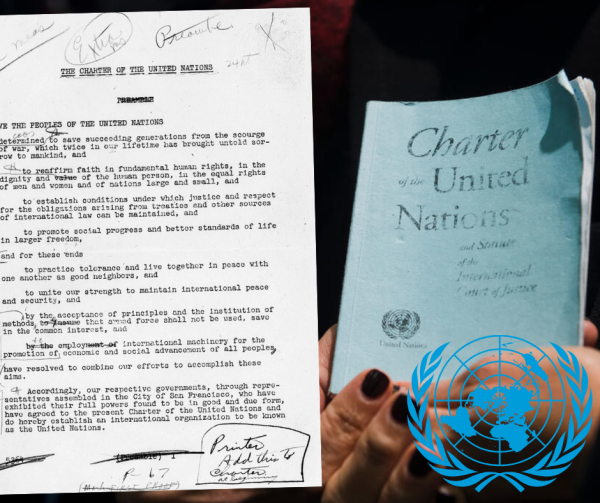80 Years UN Charter: guidelines for humanity

80 years ago, on June 26, 1945, almost 50 states signed the founding document of the United Nations, the UN Charter, in San Francisco. The guiding principle of this organization - shortly after the end of the Second World War - was to be “never again”: Never again should a war of this magnitude devastate the world. With its principles and obligations, the Charter laid the foundation for a multilateral world order.
“We, the peoples of the United Nations...” is the iconic introduction to the text of the Charter. It is regarded as an international treaty and also creates the basis for peace missions and humanitarian aid, among other things. It is an achievement that should not be underestimated and a historic moment to agree on such rules after the horrors of war.
In view of the increasing erosion of international law and the withdrawal of some states from multilateral agreements, it is once again important to stand up for the Charter and the multilateral order - after all, it is a kind of “basic law” of our international world order.
"The accumulated knowledge of the UN is gigantic, its contribution to rule-based coexistence is indispensable. There is no comparable organization in the world where the range of future issues such as climate, artificial intelligence, cyber, tech, food security, health, conflict and reconciliation are united under one roof," says ZIF Managing Director Dr. Astrid Irrgang, outlining the undisputed added value of the United Nations as the largest international organization and a unique platform for dialogue bringing together almost all states worldwide. Although it remains undisputed that the United Nations is also in need of reform, the organization has already embarked on this path with the Pact for the Future adopted in 2024 and the efforts towards "UN80".
Our core mandate at ZIF is to strengthen civilian capacities in/for the multilateral system, for example through cooperation with international partner organizations such as the UN, the EU or the OSCE - by providing personnel, resources, expertise, training and dialogue formats. In this way, we are strengthening and supporting this peace and security architecture on behalf of Germany. Our work is deeply inspired by the spirit of the UN Charter, which was a milestone for humanity not only 80 years ago, but remains evermore important today.
Why the UN Charter still matters today: